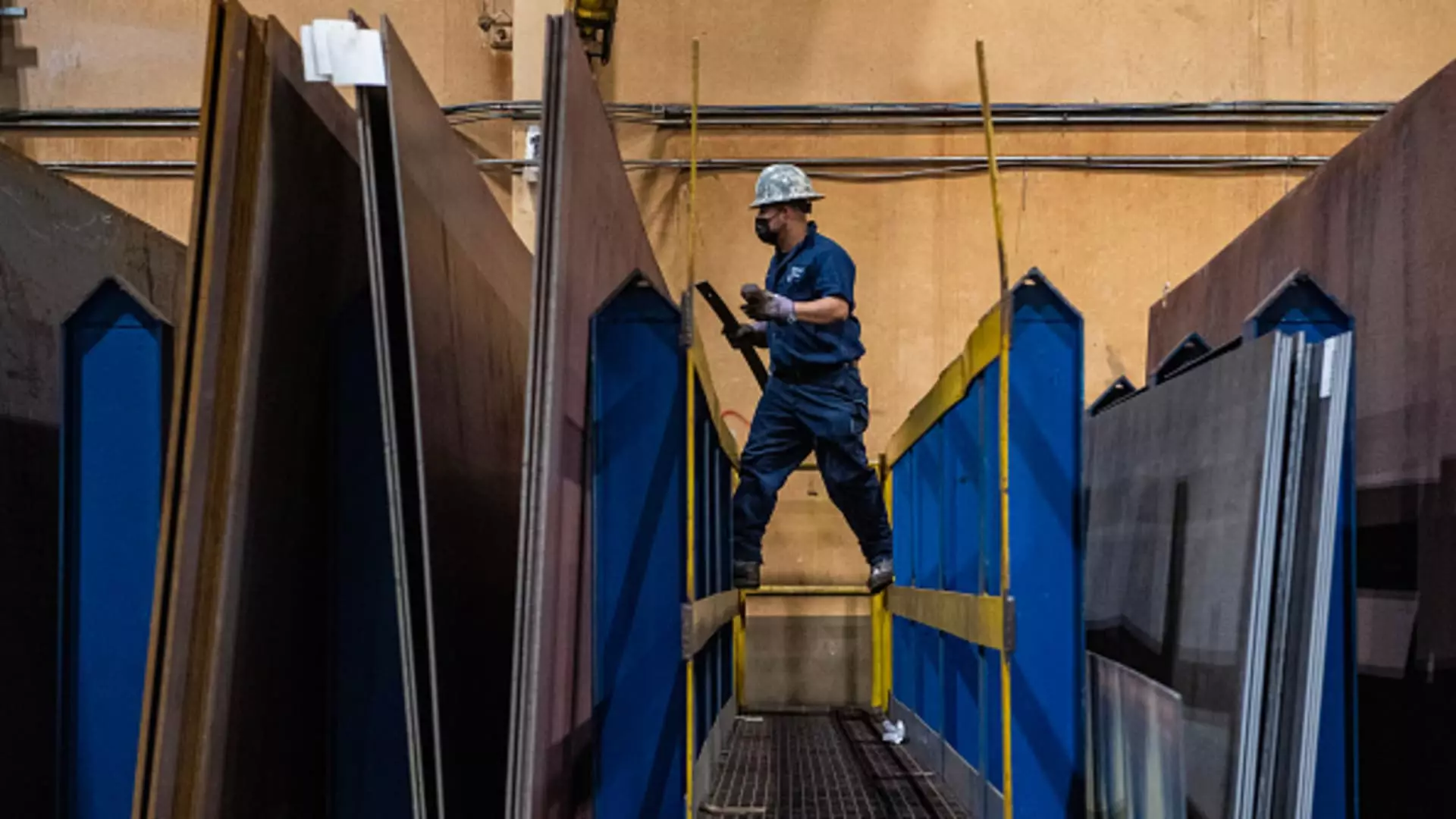The recent surge in U.S. Steel’s shares by nearly 9% may seem like a triumph, spurred on by President Trump’s directive to scrutinize Japan’s Nippon Steel’s attempted takeover. However, this movement belies an underlying turbulence resonating throughout the market. The intervention feels less like a protective measure and more like a band-aid on a gaping wound, reflecting deep-seated volatility in an already precarious trading atmosphere. The fact that presidential involvement is required to boost a single company’s stock raises alarming questions about the efficacy of market fundamentals. It also underscores a fundamental dependency on governmental oversight that should ideally be absent in a truly free market.
Automakers in Peril: Tariff Tensions and Investor Anxiety
The car industry, which has long been an economic cornerstone, is currently teetering on the edge. Automakers like Ford and General Motors have seen share prices slide dangerously, reflecting an investor group deeply concerned about any potential fallout from Trump’s aggressive tariff strategies. The 6% drop in Stellantis and the accompanying declines in the industry’s titans bear witness to investor panic, which is often driven by uncertainty and a fear of the unknown. In an era where innovation should ideally lead to market gains, this regression illustrates a desperation to avoid risks overly linked to political machinations.
One must question whether the auto sector might be facing a dilemma of its own making. Have these corporations become so accustomed to governmental safeguards and subsidies that they cannot weather the market storms independently? The ongoing trade war with escalating tariffs raises valid concerns—this is not merely a legal or economic issue but a national identity crisis for an industry that has prided itself on adaptability and American ingenuity.
The Electric Dream: Tesla’s Struggles Under Pressure
Elon Musk has long been heralded as a visionary, yet the recent 5% drop in Tesla’s stock serves as a sobering reminder that even electric dreams can falter. With rising concerns surrounding Musk’s relationships with the powers that be, investors are beginning to reassess the company’s projections and future trajectory. Iconic companies like Tesla should ideally thrive in conditions ripe for innovation, but pervasive political shadows threaten to topple these ambitions. If anything, the growing skepticism and declining market confidence illustrate the detrimental impact of tying your business’s fortunes to political whims.
In a market that requires stability and foresight, the trepidation over whether Tesla can sustain its growth is palpable. This anxiety is aggravated by bearish evaluations from analysts like Dan Ives, who slashed Tesla’s price target due to Musk’s political entanglements. Clearly, investors are not just buying shares; they are investing in a vision. If that vision becomes muddled by external pressures, then the entire venture may be at risk of derailment.
Unknown Threats: Machinery Stocks on the Edge
The machinery sector is facing a massive downgrade as UBS highlights an impending potential crisis. The fear of “demand destruction” owing to heightened prices brought forth by Trump’s tariffs is a symptom of a larger issue at play—the unanticipated ramifications of aggressive trade policies. Stocks like caterpillar and Terex have responded negatively, with tumbles exceeding 3%. These declines are a stark wake-up call that decisions made in the interest of national security can inadvertently cripple an industry’s groundwork.
Can we afford to have a machinery sector that is at once critical to U.S. infrastructure yet hindered by erratic policy changes? The heart of the matter is that businesses can only flourish in an environment where a balance of political foresight and economic pragmatism exists. The machinery industry should not be a casualty of rogue tariff strategies; rather, it should be a bastion of stability and innovation.
Dark Horses: The Case of Dollar Tree Amidst Market Chaos
Amongst the crumbling stocks, Dollar Tree emerged as a surprising victor with a 6% rise in shares, termed by analysts as a “dark horse winner” amid trade turbulence. This counters the current trends and suggests that in times of chaos, certain entities can act as refuges for investors looking for stability. Nonetheless, one can’t help but wonder if such a rise is sustainable or merely a fleeting illusion, propped up by a singular analysis.
As one discounts the typical doom and gloom of current market sentiments, it becomes apparent that contrasting reactions are possible, albeit rare. Dollar Tree’s trajectory urges investors to consider alternative paths during turbulent times, yet the overarching volatility makes it difficult to formulate any long-term strategies without due diligence.
The present landscape is rife with complexities, and although the stock market is subject to whims, the attempts to monitor its ups and downs demand scrutiny. The losers and winners of this swirling vortex of tariffs and political maneuvering reveal a financial ecosystem that may require more than just interventions to stabilize. We are left to ponder whether the quest for balance in our economy can indeed prevail amidst the prevailing chaos fueled by power structures.

